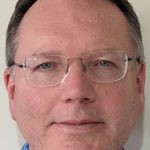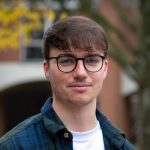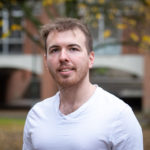Teaching programme
Students will access teaching programmes at both Bristol and Sussex and the QIST CDT will be embedded in three internationally leading research groups, the Quantum Engineering Technology Laboratories (QET Labs), the Bristol Quantum Information Institute, and the Sussex Centre for Quantum Technologies (SCQT).
Together our world-leading team has a wealth of experience and expertise, covering a huge array of QIST, spanning integrated quantum photonics, ion traps, quantum simulation, quantum networking and communication, quantum software and algorithms, quantum sensors and clocks, and fault-tolerant quantum computing.
The team’s academic pool boasts strong industry links and includes coinvestigators in all four of the current UK Quantum Technology Hubs. Capitalising on the groups’ STFC- and UKRI-funded research strengths, students will have opportunities to apply QIST to fundamental physics and applied technologies. Students will work closely with academics and partners who are strongly aligned with the next phase of Quantum Technology hubs, on projects that fit perfectly within the hubs’ research themes. All students will benefit from the Bristol-based Quantum Frontier – the innovation ecosystem that encompasses the highly successful Quantum Technologies Enterprise Centre (QTEC) and Quantum Technology Innovation Centre (QTIC), as well as the resultant links between stakeholders in industry, public policy, and academia. In addition, the QIST CDT will utilise the Sussex Science Policy Research Unit (SPRU), one of the world’s leading centres of research on science, technology and innovation policy and management, to provide dedicated training to enable students to work on science policy projects.
Our programme offers much more than a regular PhD. Students start with a first exploratory year of theoretical and practical units, with a strong component of soft-skills training throughout the programme , all enhanced by a cohort model that promotes early career collaborative research and networking. The CDT experience encompasses both the theoretical understanding and the practical application of quantum physics, and offers a breadth of opportunities for discussion, engagement and peer-to-peer learning.
QIST CDT students will, from day one, engage with bespoke training opportunities provided by combining the unique ecosystems at the Universities of Bristol and Sussex.
Year 1
Year 1 begins with an induction week (15-19th September 2025) with a packed schedule of events, workshops, presentations and social activities. We will have a two-day team building event away from the university so you can get to know your fellow students as well as key members of CDT staff.
Programme details:
All students will study ‘Applications of Quantum Information’ in the first year. The main theme of this unit is quantum information and entanglement, illustrated by some of the remarkable recent ideas including quantum teleportation and quantum computation.
This core element will be supplemented by:
• Two three-month long individual research projects selected by the student (or potential to take a 6-month individual research project with an industry partner)
• A selection of optional units in Quantum Light & Quantum Matter, Data Analysis techniques, Photonics, Practical Quantum technologies and Monte-Carlo simulations
• Team laboratory project where small groups of students from mixed disciplines target the demonstration of a groundbreaking quantum experiment
• The Cohort Grand Challenge: a project for the entire cohort that engages the group’s broad range of skills and collective creative power
• Transferable skills training covering a range of topics including scientific writing, communication, time management and creative problem solving.
• Enterprise training in entrepreneurship, exploitation and commercialisation
• A weeklong ‘International Industry trip’ where you will travel outside the UK to visit companies and universities working in the quantum field.
The aim of the first-year training programme is to furnish all students with expertise in the underpinning theory and engineering approaches needed in their research. With access to state-of-the art laboratories and a unique cohort-style approach to learning, you will be immersed in an environment that supports a research focus from the very beginning. The programme is flexible for students with a strong background in related topics., such as engineering, computer science, materials science and maths.
Case study: Trapped-Ion Quantum Computing Master Class at Sussex
We will offer a Microwave Trapped-Ion Quantum Computing Master Class at the University of Sussex. The masterclass will be led by a software engineer formerly working at Google (Joe Swainston) and two talented quantum computing researchers (one with focus on quantum gates (Chris Knapp) and the other focussing on electronics engineering for quantum computing (Pedro Taylor Burdett).
The Master class will be open for our doctoral students based at Sussex. Students will receive training in critical skills for microwave trapped-ion quantum computing and the control of quantum technology experiments using ArtiQ, all during the first year of the CDT. This will give students authentic and hands-on training towards the development of practical quantum computers and other quantum technologies based on trapped ions.

Joe Swainston
Focus on software engineering

Chris Knapp
Focus on quantum gates

Pedro Taylor Burdett
Focus on electronics engineering for quantum computing



